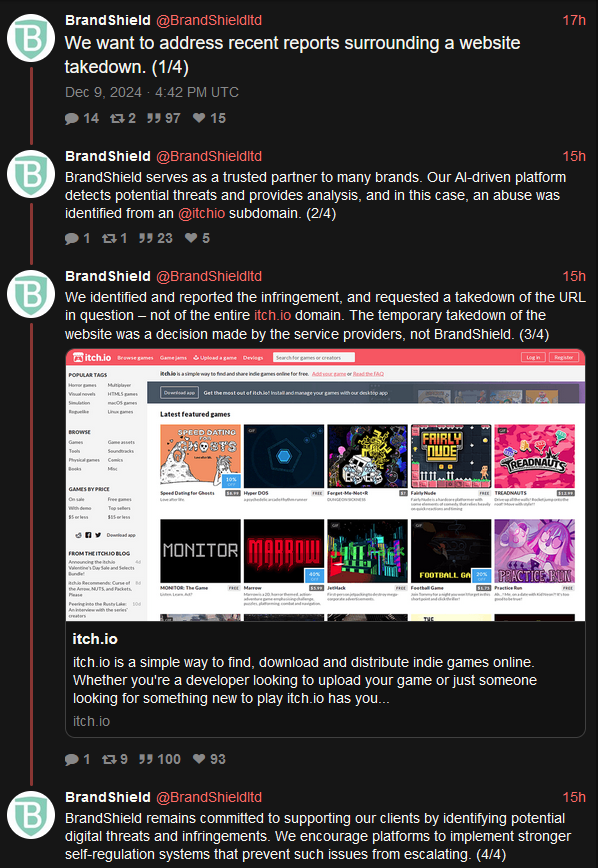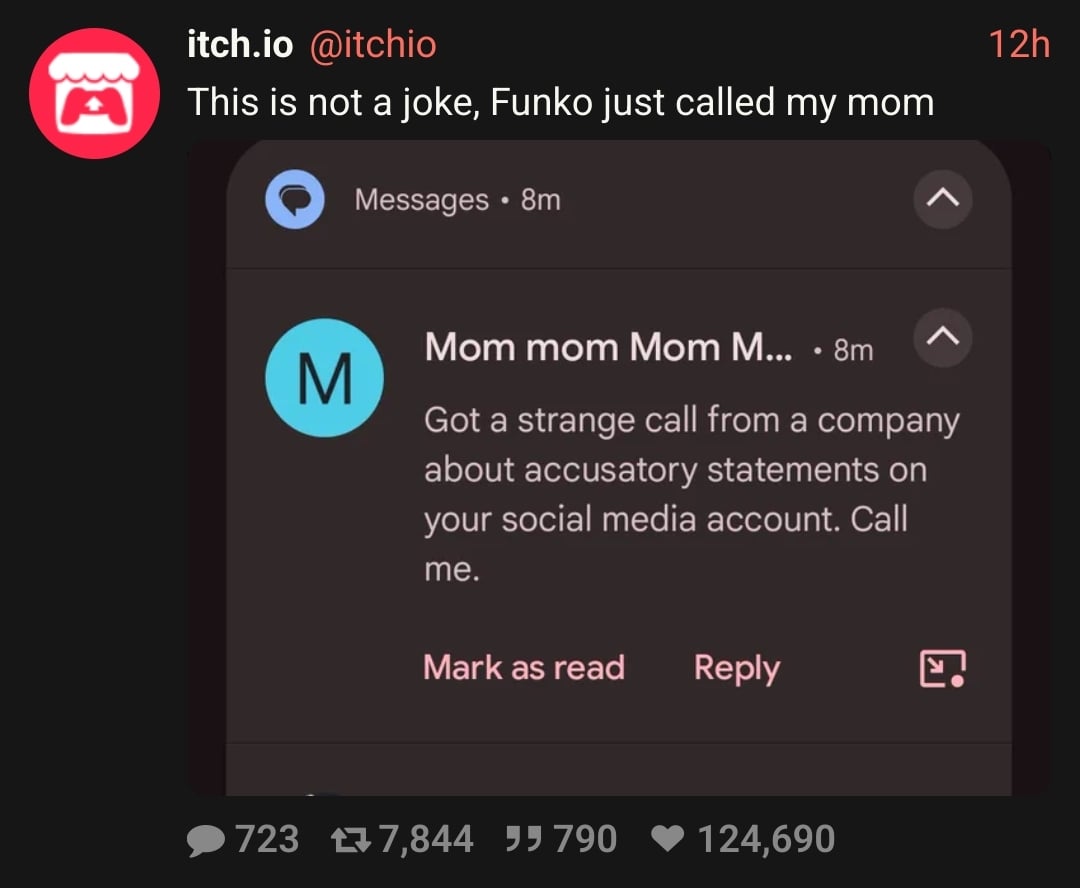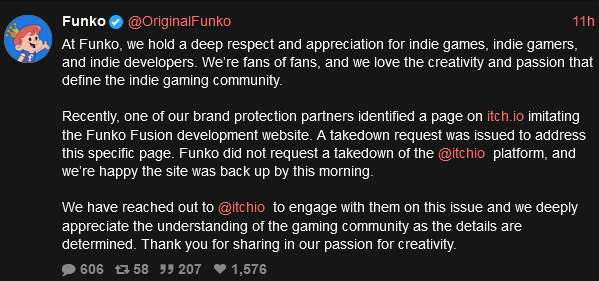this post was submitted on 10 Dec 2024
740 points (97.8% liked)
Games
34540 readers
786 users here now

Welcome to the largest gaming community on Lemmy! Discussion for all kinds of games. Video games, tabletop games, card games etc.
Weekly Threads:
Rules:
-
Submissions have to be related to games
-
No bigotry or harassment, be civil
-
No excessive self-promotion
-
Stay on-topic; no memes, funny videos, giveaways, reposts, or low-effort posts
-
Mark Spoilers and NSFW
-
No linking to piracy
More information about the community rules can be found here.
founded 2 years ago
MODERATORS
you are viewing a single comment's thread
view the rest of the comments
view the rest of the comments



I might be getting the terminology wrong, I've not had to work too closely with the specifics of subdomains in my career, lol. But you can definitely have
blah.itch.iopoints to a different IP thanitch.ioand that's done through DNS. So if they suspectedblah.itch.ioto be a phishing site imitating Funko's site, it makes sense that they'd report it to the people controlling that.And yeah, it looks like Itch does use sub domains for user pages instead of URL paths. https://xk.itch.io/ So if some user's page was trying to imitate Funk's site then I could see this line of thought. I'd need to see the page that was supposedly imitating and what it was imitating to really make a judgement call though.
Registrar is 1API.NET which uses Verisign.
DNS is currently configured to cloudflare (maybe as a result of this fubar scenario?). blah.itch.io would be pointed in DNS not from the TLD registrar in this scenario.
Contacting itch.io directly would be the first step long before going the registrar route as they obviously manage DNS on their end and not the registrar end.
If it had been phishing, then going to the registrar would have been the right call, because you want to take that down asap. But according to itch.io it wasn't, instead it was a a real fansite that was linking to the real website of funko's game (according to itch.io). Something which most media companies allow since it's basically free publicity and goodwill, but if they did want it taken down for copyright reasons, then a DMCA takedown request send to itch.io would have been the correct first action.
In the response statement by Brandshield, Brandshield does not deny having send a takedown request for phishing to the registrar (confirming that they did), nor do they dispute itch.io's statement that it wasn't a phishing site (confirming that they know that it wasn't), instead they only speak about "infringement".
So now we know that Brandshield is knowingly making false accusations that have potentially serious consequences for their victims. And it's not going to be the first time that they've done this, but even this high publicity case will probably not have any legal consequences for brandshield, so it looks like they will continue getting away with it. Unfortunately they're not alone, it often seems like the entire DMCA industry is rotten.
They said their platform is "AI driven" which could very easily imply this was an automated process with no human making a decision. It's still bad, but a different kind of bad than "knowingly" making a decision.
You can't create an automated machine, let it run loose without supervision and then claim to not be responsible for what the machine does.
Maybe just maybe this was the very first instance of their ai malfunctioning (which I don't believe for a second), in which case the correct response of Brandshield would have been to announce that they would temporarily suspend the activities of this particular program & promise to implement improvements so that it would not happen again. Brandshield has done neither of these, which tells me that it's not the first time and also that Brandshield has no intention of preventing it from happening again in the future.
I'm not trying to exonerate them of any blame, I'm just saying "knowingly" implies a human looking at something and making a decision as opposed to a machine making a mistake.
I made an automaton. I set the parameters in such a way that there is a large variability of actions that my automaton can take. My parameters do not pre-empt my automaton from taking certain illegal actions. I set my automaton loose. After some time it turns out that my automaton has taken an illegal action against a specific person. Did I know that my automaton was going to commit a illegal action against that specific person? No, I did not. Did I know that my automaton was sooner or later going to commit certain illegal actions? Yes I did, because those actions are within the parameters of the automaton. I know my automaton is capable of doing illegal actions and given enough incidences there is an absolute certainty that it will do those illegal actions. I do not need to interact with my automaton in any way to know that some of it's actions will be illegal.
And I'm not saying that you are. I tried to show with a parable that they do not need to see their machine's actions to know that some of it's actions are illegal. That's what we were disagreeing on: that they know.